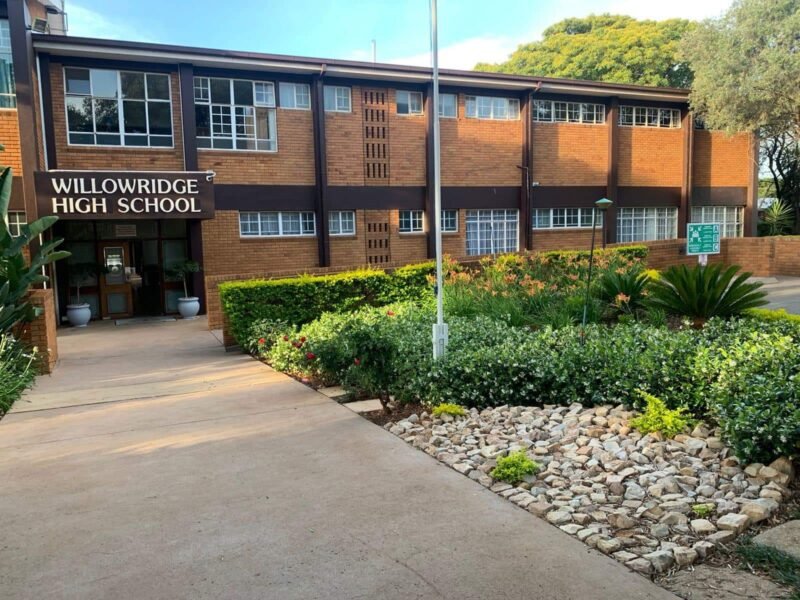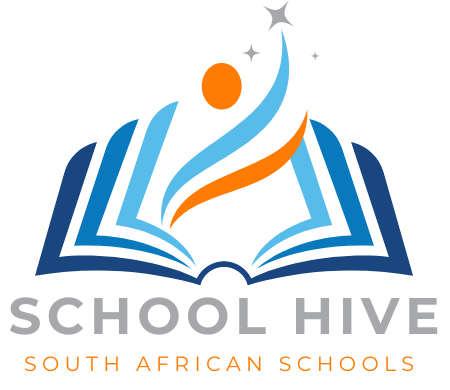Willowridge High School Pretoria Admissions | Contact Details


Willowridge High School is a Public Secondary in Pretoria The Willows Pretoria in Gauteng, South Africa.
---Advert---
About Willowridge High School Pretoria
Welcome to the esteemed Willowridge High School, an integral pillar of the educational landscape in the vibrant community of Pretoria. Willowridge High School is a bustling hub of intellectual growth and development for 95 learners. These bright minds are guided, mentored, and nurtured by our dedicated faculty of 10 teachers. Willowridge High School is proud to operate under the aegis of the Tshwane South Education District, which serves as a beacon of educational excellence in the Gauteng region. Willowridge High School is committed to fostering an environment conducive to learning, growth, and advancement for all our students.
Willowridge High School, a young and vibrant educational institution, has fostered an environment where youthful ideas flourish and talented individuals excel. Rooted in the rich history of Pretoria East and the early development of the Transvaal, our school pays homage to four influential South Africans who made significant contributions to the region. Through our house system and their original family crests, we honor their legacy and embrace their pioneering spirit.
Historical Roots: The first figure in our chronology is Harry Struben, renowned for his pioneering efforts in the gold fields. In 1860, Struben established a transport business connecting the old ZAR capital with Natal. Utilizing the profits from this venture, he acquired a farm named The Willows, situated far east of Pretoria at the time.
Formation and Vigilance Committee: In early 1985, a Vigilance Committee was elected during a meeting of prospective parents. Serving as dedicated watchdogs, their primary responsibility was to oversee the progress of the new school. As construction commenced on the site, which once housed a farm, the committee played a crucial role in preserving the school cottage and the surrounding trees. These elements now contribute to the tranquil country atmosphere that characterizes our campus.
Establishing Ethos and Philosophy: The committee’s efforts extended beyond physical preservation. They focused on cultivating a unique ethos for Willowridge High School and establishing a fundamental philosophy. It was a collaborative endeavor aimed at creating an inclusive and inspiring environment for students. After months of dedication, our school officially opened its doors on Wednesday, January 7, 1987, warmly welcoming the inaugural cohort of 187 pupils in Forms One and Two.
Name and Badge Design: During the first term of operation, the school adopted the official name of Willowridge High School. Alongside this, the task of designing a distinctive badge was undertaken. The badge serves as a visual representation of our school’s identity, reflecting the values, aspirations, and achievements that define our educational community.
Conclusion: Willowridge High School stands proudly as a testament to the legacy of the four remarkable South Africans who influenced the region’s early development. Nurturing enthusiasm, fostering friendship, and embracing a pioneering spirit, we continue to provide a dynamic and enriching educational experience for our students. Our commitment to preserving history, establishing a profound ethos, and nurturing young minds remains unwavering as we shape the leaders of tomorrow.
Facts:
- Number of Learners: 95
- Number of Teachers: 10
- Education District: Tshwane South
- Sector: Public School
Fees
The fees for public schools in South Africa can vary greatly depending on a number of factors including the specific school, the area, and the level of funding that the school receives from the government.
In South Africa, schools are categorized as either “fee-paying” or “no-fee” schools. “No-fee” schools are public schools that receive more funding from the government and do not charge school fees. These are typically in less affluent areas. “Fee-paying” schools, on the other hand, receive less funding from the government and charge school fees to cover the costs of providing education.
For fee-paying schools, the school governing body, which is made up of parents and staff, determines the school fees. These can range from a few thousand to several tens of thousands of South African rands per year. For example, in some cases, primary school fees might be around R1,000 to R5,000 per year, while high school fees could be R10,000 to R50,000 per year or even more. Again, these numbers can vary greatly and are only estimates.
In addition, there are also provisions in South African law to provide exemptions or reductions in school fees for parents who are unable to afford them. This is based on the combined annual income of the parents.
Uniform
Please contact the school regarding the latest updates on school uniform.
Willowridge High School Subjects
Read more about Willowridge High School Subjects Here. The South African secondary school curriculum, known as the Further Education and Training phase, includes compulsory subjects as well as a choice of optional subjects. The National Senior Certificate is awarded at the end of Grade 12. Here’s an outline of subjects typically offered in South African secondary schools:
Compulsory Subjects:
Home Language: This is typically the student’s first language. It can be any of the 11 official languages of South Africa.
First Additional Language: This is a second language, and it can also be any of the 11 official languages.
Life Orientation: This subject teaches social, personal, intellectual, emotional, and physical life skills.
Mathematics or Mathematical Literacy: Mathematics covers more complex mathematical concepts, while Mathematical Literacy provides basic mathematical skills for everyday life.
Optional Subjects (students usually select three of these):
Humanities:
History
Geography
Religion Studies
Music
Visual Arts
Dramatic Arts
Languages (Third Additional)
Business, Commerce, and Management Studies:
8. Business Studies
Economics
Accounting
Physical, Mathematical, Computer, and Life Sciences:
11. Physical Sciences (Physics and Chemistry)
Life Sciences (Biology)
Computer Applications Technology
Information Technology
Technical Subjects:
15. Engineering Graphics and Design
Civil Technology
Electrical Technology
Mechanical Technology
Services Subjects:
19. Consumer Studies
Hospitality Studies
Tourism
Agricultural Sciences:
22. Agricultural Sciences
Agricultural Technology
Agricultural Management Practices
Please note that the availability of optional subjects may vary from school to school. It’s important for students to select their subjects based on their interests, strengths, and future career plans.
Contact Details
- Tell: 0128073423
- Physical Address: 518 Verkenner Ave, The Willows, Pretoria, 0040
- Website: https://www.willowridge.co.za/
- Email: sjones@willowridge.co.za
